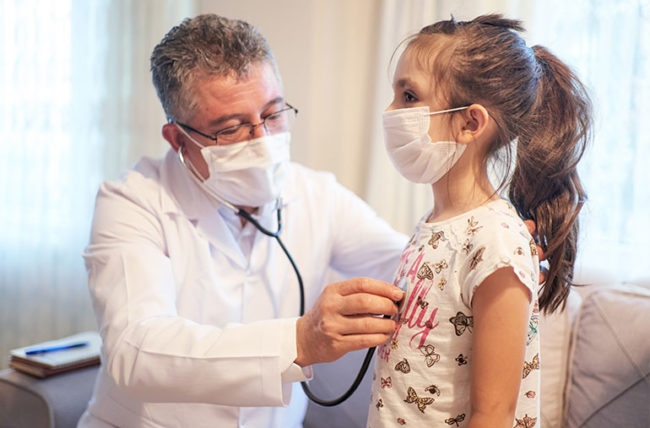If you are a woman, it is important to know that you can still get pregnant.
You probably have a lot of questions about traveling when pregnant, whether you need to travel for your job or you want to go on a babymoon.
Is it safe to fly? Flying is out of the question. What happens if I go into labour while away from home?
There are several factors you should consider before booking any future trips. Ob/Gyn Kristen Ekman MD explains what you should consider before you travel (or take to the skies, seas, or…you get the idea).
Can I travel while pregnant?
Traveling during pregnancy is generally safe, but it’s important to consult your doctor and have a plan for any emergency medical situations.
“The closer you get to your due date, you should try to stay at home,” advises Dr. Ekman. Most airlines do not allow pregnant passengers to board planes during the last month.
Traveling during pregnancy: Things to avoid
You’ll want to prepare for your trip, just as you would with any other aspect of pregnancy. Dr. Ekman offers some tips to keep in mind before traveling.
How far are you?
The second trimester is the best time to travel when you are pregnant. It is usually when women feel the best during pregnancy.
The risk of complications is lower during the second trimester. By then, you should have recovered from the nausea that you experienced in your first months of pregnancy. You should always be aware that anything could happen at any moment, and you do not need to stay close to home if you aren’t close enough to the due date.
“For most people, morning sickness and discomfort are the norm during the first trimester as their bodies adjust to pregnancy,” Dr. Ekman says. The third trimester can be more painful. It’s best to stay near your doctor as you approach your due date.
Medical Conditions
You should discuss your medical condition with your doctor before traveling. If you suffer from a medical condition such as:
- Anemia.
- Gestational Diabetes.
- High Blood Pressure.
It’s important that you bring your medical records or access them remotely if you have any pre-existing health conditions.
If you carry multiples
If you are pregnant with twins or multiples (triplets, etc.), you may be at a higher risk of premature delivery. Talk to your doctor about the best times to travel. “Your provider might suggest that you remain closer to home,” says Dr. Ekman.
Infections or diseases at your destination
Check your destination before you fly to determine if there are any diseases that are spreading, such as Zika or COVID-19. These can be harmful to both you and your baby if infected.
Dr. Ekman explains that the Zika virus is spread through mosquito bites and sex. It’s a serious disease that’s been linked to a birth defect Microcephaly which can reduce your child’s lifespan.
Talk to your doctor about the best way to avoid getting sick if you’re traveling to a place where there is an outbreak. Use an insect repellent to prevent mosquito bites and keep your skin covered.
Travel vaccinations for pregnant women
There are some vaccines that are not recommended for pregnant women, such as live vaccines, like the (Measles, Mumps, and Rubella) vaccine. Some vaccines are safe to use during pregnancy, such as influenza and COVID-19.
Talk to your doctor about the benefits and risks of getting immunized while pregnant.
“Sometimes the risk of becoming sick is greater than the side effects of the vaccination,” says Dr. Ekman.
Flying during pregnancy
Many pregnant women can travel safely by plane. However, you should check with your doctor to ensure that you do not have any medical conditions which could lead to complications during your flight.
Dr. Ekman says that on longer flights you might need to stand up and stretch your legs to avoid blood clots.
When should pregnant women stop travelling?
Your due date is only an estimate. You can have a spontaneous labor in the final weeks of your pregnancy.
Dr. Ekman says that most healthcare providers advise you to stay close to home during the third trimester and in particular the last month of your pregnancy. If you are traveling at the end or your pregnancy, it’s important to know where the nearest hospitals and medical facilities are.
If you have a pregnancy complication that requires close monitoring by your doctor, such as preeclampsia or placenta prévia and a history of premature labor, then it’s best to avoid traveling.
When is it illegal to fly an airplane?
It depends on the airline and whether or not you are traveling internationally or domestically.
You should check the airline’s policy before making a booking. Each airline has a different policy regarding when you cannot fly during pregnancy. Call ahead to confirm that you can fly.
Most airlines will not allow you to travel in the last month of your pregnancy. However, some airlines limit travel even earlier, as early as 28 weeks or 29 weeks. International flights also have a more restrictive cutoff time for pregnant passengers.
Travel insurance is a must if you plan to fly during pregnancy.
Traveling with a pregnant woman? Here are some tips.
You should be ready for any medical emergency when you travel during pregnancy. Dr. Ekman shares some safety precautions you should take in case of an emergency.
1. Stretch your legs
Moving around and getting up during travel will help to prevent the development of a condition known as deep venous thrombosis. This occurs when blood-clotsform in your veins and travel through your body. Your risk increases during pregnancy.
Dr. Ekman explains that this could include stopping your car to stretch and walk around for a couple of minutes, or getting up from your seat in a train or plane. If you’re in this situation, book an aisle seat to make it easier for yourself to get up.
2. General safety guidelines
Traveling safely and healthily is easy with these common sense travel tips.
- Check the water quality of your destination. Contaminated waters may cause serious illness. In some places, you should drink bottled or filtered water in order to avoid becoming sick.
- Be sure to follow nutrition guidelines. It’s possible that you won’t be able enjoy all of the culinary experiences you would if you were not pregnant. Avoid eating raw fish and be careful when buying food from street vendors.
- Wear a seatbelt at all times. The shoulder belt should cross your body between your breasts and be secured across your hips.
3. Your health insurance company wants to hear from you
Check with your insurance provider to see what coverage you have for the destination you are traveling to. You may have to buy insurance for international travel.
4. Bring your medical records along
Dr. Ekman advises: “It is always a good thing to have a copy or access to your electronic medical record at your hospital, in case you require treatment away from home.” It’s important if you have a high-risk condition or other health conditions.
These records ensure you receive the best care if you are in an emergency situation or require treatment when you are far away from home. These documents will include your entire pregnancy history and any existing conditions.
A hospital outside can contact your doctor directly if you do not have your records. It’s a good idea always to keep your doctor’s phone number readily accessible.
You should also do research on the medical centers and hospitals in your area in case an emergency arises. Not all medical centers or hospitals have obstetrics units.
5. Where to find care
It’s important that you know where to go for medical care, no matter where you are or how you travel. Before you leave:
- Find the nearest hospital or medical center near your destination.
- Ask about medical services on board and in the ports your ship will be stopping. Train travel is no different. You should research the restrictions that cruise ships have on pregnant women before booking.
- When you are traveling by car, find out what hospitals or medical facilities are on your route.
Dr. Ekman says that “this kind of advanced planning can make a huge difference in an emergency situation where you need to get care quickly.”
You may have a lot of questions about traveling during pregnancy, whether you’re planning to go on a babymoon or travel for your job.
Is it safe to fly? Flying is out of the question. What happens if I go into labour while away from home?
There are several factors you should consider before booking any future trips. Ob/Gyn, Kristen Ekman MD, explains what you should consider before you travel (by road, air, sea, or whatever).
Can you travel when pregnant?
Traveling during pregnancy is generally safe, but it’s important to consult your doctor and have a plan for any emergency medical situations.
“For the majority, the closer to your due date you are, the more you should stay at home,” advises Dr. Ekman. Most airlines do not allow pregnant passengers to board planes during the last month of their pregnancy.
Traveling during pregnancy: Things to avoid
You’ll want to prepare for your trip, just as you would with any other aspect of pregnancy. Dr. Ekman offers some tips to keep in mind before traveling.
How far are you?
The second trimester is the best time to travel when you are pregnant. The second trimester is usually when women feel the best.
The risk of complications is lower during the second trimester. By then, you should have recovered from your nausea in the first months. You should always be aware that anything can occur at any moment, and you do not need to be close to your due date to avoid complications.
Dr. Ekman says that morning sickness is common in the first trimester as the body adjusts to pregnancy. The third trimester can be more painful. It’s best to stay near your doctor as you approach your due date.
Medical Conditions
You should discuss your medical condition with your doctor before traveling. If you suffer from a medical condition such as:
Anemia.
Gestational diabetes.
High blood pressure
It’s important that you bring your medical records or access them remotely if you have any pre-existing health conditions.
If you carry multiples
If you are pregnant with twins, triplets, or multiples, you may be at a higher risk of having your baby early. Talk to your doctor about the best times to travel. Dr. Ekman suggests that your provider might suggest you stay close to home.
Infections or diseases at your destination
Check your destination before you fly to determine if there are any diseases that are spreading, such as Zika or COVID-19. These can be harmful to both you and your baby if you get infected.
Dr. Ekman explains that the Zika virus is spread through mosquito bites and sex. It’s a serious disease that’s been linked to microcephaly (a birth defect) which can reduce your child’s lifespan.
Speak to your doctor about the best ways to avoid getting sick if you’re traveling to a place where there is an outbreak. Use insect repellents and cover your skin to prevent mosquito bites.
Travel vaccinations for pregnant women
Certain vaccines, such as the MMR vaccine (measles mumps rubella), are not recommended for pregnant women. Some vaccines are considered safe for pregnant women, such as influenza and COVID-19.
Talk to your doctor about the benefits and risks of vaccinations while pregnant if you are traveling to an area that you would normally receive vaccines to protect you from disease.
Dr. Ekman states that the side effects of vaccines are not always as bad as they seem.
Flying during pregnancy
Many pregnant women can travel safely by plane. However, you should check with your doctor to ensure that you do not have any medical conditions which could lead to complications during your flight.
Dr. Ekman says that on longer flights you might need to stand up and stretch your legs to avoid blood clots.
When should pregnant women stop travelling?
Your due date is only an estimate. You can have a spontaneous labor in the final weeks of your pregnancy.
Dr. Ekman agrees. If you are traveling at the end or your pregnancy, it’s important to know where the nearest hospitals and medical facilities are.
If you have a pregnancy complication that requires close monitoring by your doctor, such as preeclampsia or placenta prévia, it may be necessary to cancel your travel plans sooner.
When is it illegal to fly an airplane?
It depends on the airline and whether or not you are traveling internationally or domestically.
You should check the airline’s policy before making a booking. Each airline has a different policy regarding when you cannot fly during pregnancy. Call ahead to confirm that you can fly.
Most airlines will not allow you to travel in the last month of your pregnancy. However, some airlines limit travel even earlier, as early as 28 weeks or 29 weeks. International flights also have a more restrictive cutoff time for pregnant passengers.
Travel insurance is a must if you plan to fly during pregnancy.
Traveling with a pregnant woman? Here are some tips.
You should be ready for any medical emergency when you travel during pregnancy. Dr. Ekman shares some safety precautions you should take in the event of an emergency.
1. Stretch your legs
Moving around and getting up during a trip can prevent the development of a condition known as deep vein thrombosis. Blood clots can travel through your body and cause this condition. Your risk increases during pregnancy.
“This can be stopping your car to stretch and walk around for a couple of minutes,” says Dr. Ekman. “Or it could be getting up from your seat on a train or plane.” If you’re in this situation, book an aisle seat to make it easier for yourself to get up.
2. General safety guidelines
Traveling safely and healthily is easy with these commonsense tips.
Check the water quality in your destination. In some areas, drinking contaminated water can cause serious illness. To avoid this, drink only bottled water and don’t add ice.
Be sure to follow nutrition guidelines. It’s possible that you won’t be able enjoy all of the culinary experiences you would if you were not pregnant. Avoid eating raw fish and be careful when buying food from street vendors.
Always wear your seat belt. The seat belt should be worn across the hips (under the belly), and the shoulder strap should run across your body between your breasts.
3. Your health insurance company wants to hear from you
Check with your insurance provider to see what coverage you have for the destination you are traveling to. You may have to buy insurance for international travel.
4. Bring your medical records along
“It is always a good thing to have a copy or access to your medical records, through the electronic medical record of your hospital, in case you require treatment away from home,” says Dr. Ekman. It’s important if you have a high-risk condition or other health conditions.
These records ensure you receive the best care if you are in an emergency situation or require treatment when you are far away from home. These documents will include your entire pregnancy history and any existing conditions.
A hospital outside can contact your doctor directly if you do not have your records. It’s a good idea always to keep your doctor’s phone number readily accessible.
You should also do research on the medical centers and hospitals in your area in case an emergency arises. Not all medical centers or hospitals have obstetrics units.
5. Where to find care
It’s important that you know where to go for medical care, no matter where you are or how you travel. Before you leave:
Find the nearest hospital or medical center near your destination.
Ask about medical services on board and in the ports your ship will be stopping. Train travel is no different. You should research the restrictions that cruise ships have on pregnant women before booking.
When you are traveling by car, find out what hospitals or medical facilities are on your route.
“This type of advance planning could make all the different if you have an emergency and are in a rush to get care,” says Dr. Ekman.






















